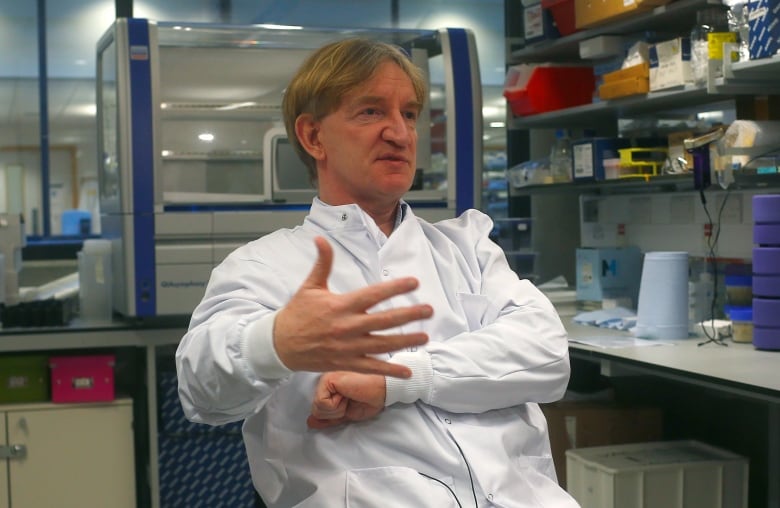A million doses of a potential COVID-19 vaccine being developed by British scientists are already being manufactured and will be available by September, even before trials prove whether the shot is effective, the team said on Friday.
The Oxford University team’s experimental product, called “ChAdOx1 nCoV-19,” is a type known as a recombinant viral vector vaccine, and is one of at least 70 potential COVID-19 candidate shots under development by biotech and research teams around the world.
At least five of those are in preliminary testing in people.
The Oxford scientists said Friday they were recruiting volunteers for early stage — Phase 1 — human trials of their shot, and large-scale production capacity was being put in place “at risk.” This means the shots will be produced in large numbers at risk of being useless if trials show they do not work.
“We have started at risk manufacturing of this vaccine not just on a smallish scale … but with a network of manufacturers in as many as seven different places around the world,” Adrian Hill, a professor and director of the Jenner Institute at Oxford University, told reporters in an online briefing.

“The aim is to have at least a million doses by around about September, when we also hope to have efficacy [trial] results.”
He said three of the manufacturing partners were in Britain, two in Europe, one in India and one in China.
The scientists said initial manufacturing costs would be in the “tens of millions” of pounds and acknowledged the investment risk of pressing ahead with production before verification.
They did not give details of their financing.
Vaccine trials to begin within weeks
By 11:00 a.m. ET Friday, more than 2.18 million people had been reported to be infected by the novel coronavirus globally, according to a Johns Hopkins tally. There have been nearly 150,000 deaths.
Hill’s team said it plans to start safety and then mid-stage efficacy trials of the potential COVID-19 vaccine in adults aged between 18 and 55 within weeks.
They then plan to expand the trial group to older ages later, and hope to run a final phase trial with around 5,000 volunteers in the late summer.

